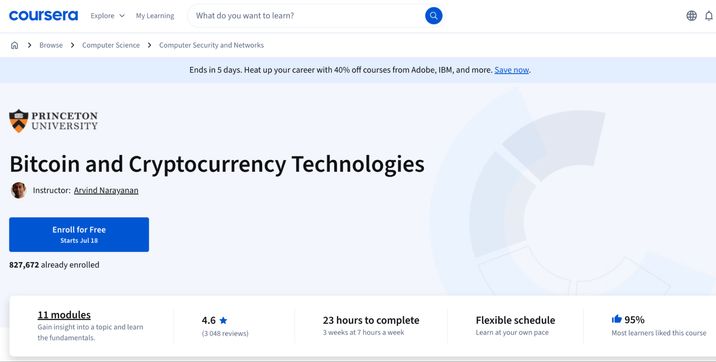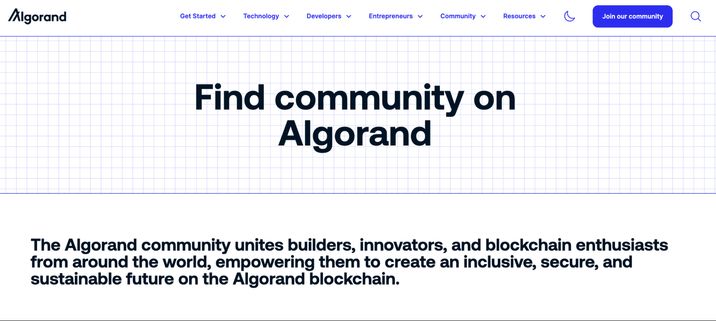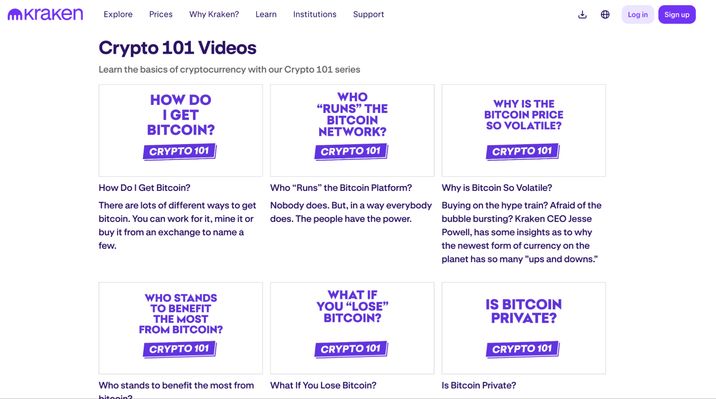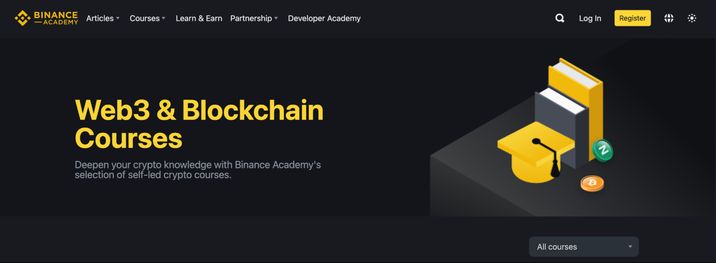Grasping the fundamentals of cryptocurrency can significantly enhance your ability to trade effectively and profitably, devoid of emotional biases. We’ve curated a selection of the most recognized and beneficial cryptocurrency courses tailored for both novices and seasoned traders.
Top Cryptocurrency Courses on UDEMY
Udemy boasts over 700 cryptocurrency courses, holding an average rating of 4.4 and attracting nearly 3.5 million participants.
A standout among these is the Complete Cryptocurrency Course: More than 5 Courses in 1, created by Chris Haroun. This extensive course, featuring 23 hours of material across 217 lectures, has earned a stellar 4.6-star rating and over 18,800 reviews. It encompasses a wide range of topics, including investing, mining, wallet management, exchanges, DeFi, and NFTs, making it suitable for both newcomers and more experienced users. Furthermore, it includes hands-on assignments and Excel spreadsheets to assist with portfolio analysis.
Another excellent choice is the Cryptocurrency Investment Course 2025: Fund your Retirement, taught by Suppoman and updated in November 2024. This course has a 4.5-star rating based on 24,890 reviews and has drawn more than 120,000 students. It features six comprehensive modules that delve into core fundamentals, Bitcoin and Ethereum technologies, early investment strategies, meme coins, Layer 1 blockchains, DeFi, the metaverse, and NFTs. Suppoman shares his methodologies that led to substantial portfolio expansion, coupled with tutorials for wallet setups and interactions with both centralized and decentralized platforms.
For those seeking a quick introduction to cryptocurrency basics, George Levy’s Cryptocurrency Fundamentals: Buy, Sell, Trade Cryptocurrency is an ideal option. With approximately 2 hours of content, rated 4.5 stars by 11,635 students, this course covers foundational topics like trading, storage, and staking, complete with a PDF guide to enhance understanding.
Exploring Cryptocurrency Courses on Coursera

Coursera provides a vast selection of cryptocurrency and blockchain courses presented by prestigious universities and companies worldwide. Its structured academic format, featuring well-organized modules, assessments, and opportunities to earn official certifications, enhances the learning experience. While first modules or a 7-day trial are available for free, full course access requires payment.
The comprehensive course by Princeton is potent for those seeking technical insights, despite being somewhat challenging for beginners. However, some critique the materials as dated, particularly regarding topics like smart contracts and Ethereum.
In summary, Coursera is perfectly suited for individuals pursuing a foundational understanding of cryptocurrency, blockchain principles, and market dynamics, backed by accredited certificates.
Learn Blockchain Development with Algorand 101

The Algorand community presents a wealth of resources to delve into the blockchain ecosystem, from foundational knowledge to developing decentralized applications (dApps). Their official developer website features a comprehensive learning portal that includes documentation, bootcamps, master classes, and live workshops.
AlgoKit serves as a helpful toolkit for developers, streamlining the process of starting and testing smart contracts in popular languages such as Python, JavaScript, and Go. Regular free bootcamps offer intensive, hands-on learning experiences, often culminating in hackathons where participants can earn NFT certificates to display on LinkedIn.
An active community on Discord, alongside various forums, fosters an engaging environment for experience sharing and idea discussion. Additionally, Dacade provides community-driven training through the Algorand Development 101 course, which comprises four modules totaling around 120 minutes. This course instructs users on building a marketplace dApp on Algorand, focusing on smart contract development in PyTeal, crafting a React frontend, and connecting to the test network.
Kraken Learn: Your Crypto 101 Resource

Kraken Learn, the educational arm of the Kraken crypto exchange, is renowned for its Crypto 101 video series designed for absolute beginners. The focus is on delivering high-quality, well-structured video tutorials that explain core concepts — such as what Bitcoin is, its significance, what influences its price variations, and procedures for accessing lost funds.
A dedicated section on security features in-depth discussions. In the Crypto Security Guide, Kraken’s Chief Information Security Officer outlines essential security practices that include the functionality of two-factor authentication, the importance of hardware keys like YubiKey, safeguarding against SIM swap attacks, and the risks associated with hot wallets for large crypto holdings. This information is particularly beneficial for beginners learning practical asset protection techniques.
Kraken Learn maintains a neutral stance, avoiding frequent promotions of Kraken’s services, which creates a sense of academic independence. However, this platform has its limitations; it’s available only in English, which may hinder non-English speakers, and is focused exclusively on beginner-level content, lacking advanced topics like DeFi, NFTs, or algorithm-based trading strategies. Furthermore, users aren’t rewarded with tokens or bonuses for completing courses.
Binance Academy: Comprehensive Crypto Learning

Binance Academy is the educational initiative of the leading cryptocurrency exchange, offering a plethora of free resources on cryptocurrencies, blockchain technology, DeFi, Web3, NFTs, security, and technical analysis.
The platform is designed for a diverse audience, from beginners to advanced users and developers. Novice users can start with introductory materials explaining blockchain, the workings of cryptocurrencies, wallet necessity, and the distinctions between hot and cold wallets.
Content is delivered through short articles and videos, complete with infographics, and available in multiple languages, enhancing accessibility for international users. The Beginner and Intermediate Tracks cover fundamental aspects of crypto and blockchain, while hands-on features like the “Learn & Earn” program incentivize learning through small crypto rewards for quiz completions.
The platform offers in-depth topics for intermediates and advanced learners, such as DeFi protocols, trading algorithms, order types, Layer 2 solutions, and infrastructure for NFTs. Binance routinely provides technical and partner-centric courses related to building dApps on the BNB Chain.
However, do note that Binance Academy’s content often centers around the Binance ecosystem, leading to a promotional feel at times. Despite the extensive library, the educational experience lacks a unified structure, resembling more of an encyclopedia than a well-orchestrated learning program. To effectively deepen your knowledge or achieve consistent progress, users may need to create individualized learning pathways.
Selecting the Right Course for You
Step 1: Clarify Your Goals
Identify what you want to achieve with the course. Do you want to learn how to invest in crypto proficiently? Focus on courses that emphasize portfolio management and fundamental analysis.
If trading and chart analysis interest you, seek courses dedicated to technical analysis (like those available on Udemy or Binance).
Are you curious about the underlying technology? Consider more theory-oriented programs available on Coursera. For those keen on developing blockchain applications and pursuing a career in Web3, opt for development-centric courses focusing on smart contracts, NFTs, and backend solutions.
Step 2: Choose Your Preferred Learning Format
Recognizing your preferred style of learning is crucial. If you absorb information better visually, consider video courses on Udemy, Coursera, or Kraken. For hands-on learners, interactive platforms like Binance Academy (which includes quizzes and rewards) or Dacade (following a code-by-doing approach) may be ideal.
If you enjoy working through documentation independently, examine developer hubs like Algorand.org or Ethereum.org for self-guided learning.
Step 3: Compare Course Attributes
Once you’ve shortlisted several courses, assess them based on the following criteria:
- Updates: Newer courses generally provide more pertinent insights due to the fast-paced nature of the crypto market.
- Reviews: Aim for courses rated 4.5 or higher to ensure quality.
- Depth of Content: Evaluate whether the course covers a comprehensive range of topics and includes practical assignments.
- Certification: If you need a certificate, choose platforms such as Coursera or Udemy that offer this option.
Step 4: Try Before You Commit
Whenever possible, sample a free module, demo lesson, or short introductory course to gauge compatibility with your learning style. Platforms like Udemy often provide video previews, Coursera has trial periods, and both Binance Academy and Kraken typically offer free resources. Testing out the material can help determine if the teaching approach aligns with your needs.












